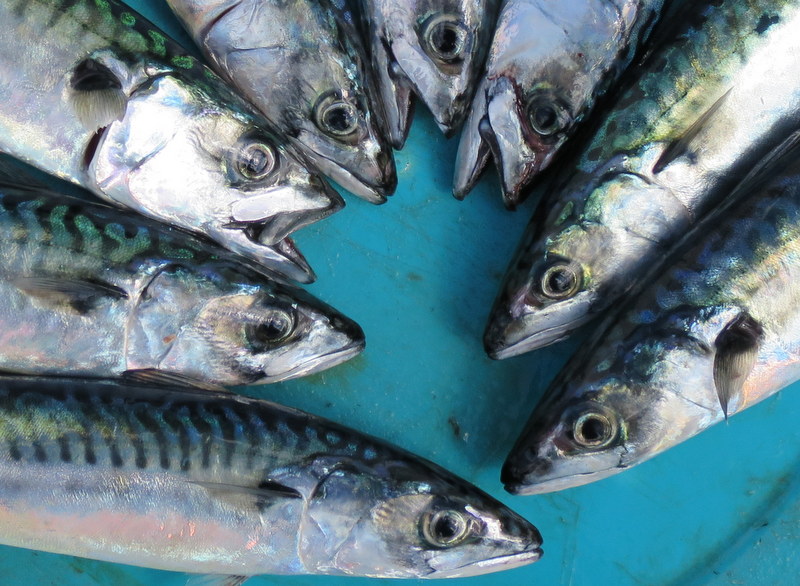30 de octubre de 2023


Author——————————-
Steven Adolf
Senior Consultant – Sustainable Fisheries and Ocean Management
Author of «Tuna Wars»
✉️
Based on outcomes of recent negotiations on the management of Northeast Atlantic pelagic fish stocks (mackerel, blue whiting and atlanto-scandian herring), the North-East Atlantic Fisheries Commission (NEAFC) and associated coastal states must urgently revise how they make decisions, involve stakeholders, and function as an international fisheries management body. If it does not succeed, the organization runs the risk of a total failure in the management policy of a number of stocks of global importance, resulting in a major crisis of sustainable market supply.
At first glance, many conditions that should make NEAFC a successful organization when it comes to the sustainable management of internationally shared fish stocks seem met. With only six contracting Parties (Denmark for the Faroe Islands and Greenland, the European Union, Iceland, Norway, the Russian Federation, and the United Kingdom), NEAFC has a relatively small number of states that need to agree on management measures. And, most of those states have a well-developed notion of sustainable fisheries management domestically and internationally via other Regional Fisheries Management Organization (RFMOs). Moreover, the NEAFC and coastal states already have a history of agreeing on harvest strategies, or what NEAFC calls long-term management strategies (LTMS’s) for herring, mackerel and blue whiting tested via management strategy evaluation (MSE).
A growing consensus of all stakeholders involved – fisheries, market, government officials and NGOs – is that modern management of international fisheries needs harvest strategies. These management procedures, being pre‑agreed systems for making fisheries management decisions, like setting catch limits, save time and money by avoiding regularly recurring political negotiations for each stock status update. Harvest strategies not only ensure the health of the stocks and a long-term profitability of the fisheries, but also increase the stability and predictability of the supply for the markets.
But instead of a success-story of implementing harvest strategies, NEAFC runs the risk of becoming a proverbial case of The Tragedy of the Commons: a dysfunctional RFMO that passes its responsibilities onto groups of coastal states that are incapable of the collective action required to manage these important shared stocks successfully, and with public transparency and accountability.
The core of the problem: the coastal states have, in recent years, failed to agree upon quota allocation mechanisms for the Total Allowable Catches (TACs) set by LTMS’s or advice of the International Council for the Exploration of the Sea (ICES) – the science organisation responsible for advising governments on sustainable catch limits. Instead, each state sets a quota for itself, which in practice means the total annual catches are collectively and quite significantly above the scientifically advised TAC for each stock.
In the last six years alone, total combined catches of atlanto-scandian herring, mackerel and blue whiting have exceeded the catch amount advised by scientists by 31%. The consequences have been dramatic, with ICES advising in September a steep cut of 44% in herring catches, equivalent to 390,010 metric tonnes, is required for 2024. This is reminiscent of the herring stock collapse in the 1960s.
In the case of mackerel, the crisis has become known as the ‘mackerel war’. According to an article published by the Carnegie Endowment for International Peace, the mackerel war can be seen as a conflict that represents a broader issue of the effects of climate change on migratory fish stocks. As the seas warmed in the early 2000s, ‘mackerel began moving northward in search of colder waters’, the authors write. As a result, Iceland entered the NEAFC agreement and wanted ‘its fair share of the allocation’ of the newly arrived mackerel in its waters. Negotiations for the allocation of the fish ended up on a dead-end road. Catches regularly exceeding scientific advice has become the new norm, with the United Kingdom’s Marine Conservation Society announcing earlier this year that the Northeast Atlantic mackerel populations were ‘at risk’.
ICES advice shows overfishing and a continued downwards trend in the stock size of herring and mackerel towards levels that are not biologically safe. It seems that this deadlock situation will not change on short notice. This October there was agreement between the coastal states to set TACs for the stocks according to ICES scientific advice. This is expected to be rubber-stamped at the NEAFC annual meeting, but there was no breakthrough that offers the prospect of a workable quota allocation mechanism between the states, so effectively overfishing will continue unchanged.
The failure to prevent overfishing of the commercially important fish stocks of mackerel, atlanto-scandian herring and blue whiting has become a major headache for retail and trade. This is particularly true in Europe, one of the largest mackerel markets in the world with a supply of 619 kt in 2020, of which 72% comes from the North-East Atlantic coastal states. The allocation disputes have consistently meant NEA coastal states have missed their own deadlines to re-evaluate the sustainability of their management strategies. And, with the total catch regularly exceeding the scientific advice, processors, trade and retailers saw their MSC sustainability certifications suspended, since 2019 for mackerel and since 2020 for herring and blue whiting.
This undermining of existing commercial strategies for sustainable sourcing hits the markets hard. Sustainability has gone from a luxury to a necessity. Marketing and purchasing departments have invested time and substantial money in getting a certified product in the market. The certification favours market access and provides a predictable supply. And in the end, it adds shareholder value to the companies with the increasingly strict European Union regulations on sustainability reporting rules for companies. In a symposium on the current situation of NEAFC organised by the MSC in London early summer, the growing annoyance and concerns of major market stakeholders about the failing management of NEAFC was therefore widely felt. Important market stakeholders threatened coastal states that they would search for alternative sourcing policies if this situation does not change.(-5- https://www.msc.org/species/small-pelagic-fish/north-east-atlantic-pelagic-fisheries-report)
Urgent steps to resolve this immediate management crisis should have been taken during negotiations on the 2024 management of Northeast Atlantic pelagic stocks. A growing consensus of all stakeholders involved – fisheries, market, government officials and NGOs – is that modern management of international fisheries needs robust and effective harvest strategies. Mackerel has been well placed to have adoption of an MSE-tested LTMS since 2020, and with the review of the LTMS’s for blue whiting and now herring overdue, managers should be initiating transparent, inclusive evaluations of harvest strategies that are robust to the continued management realities of the NEA pelagic stocks. If the ongoing allocation disputes are not resolved this winter, then TACs for mackerel, herring and blue whiting should really have been set lower than the scientific advice to ensure a sustainable total catch in 2024.
Last but not least: in the light of the ongoing governance failures, there is an urgent need for NEAFC coastal states to look beyond the current crisis and be open for discussion on a performance review and governance reforms for the large pelagic stock management. This should cover commitments to incorporate climate-proofing and ecosystem based-fisheries management into harvest strategies for all key stocks. The review should also explore how to achieve more explicit and systematic engagement of all stakeholders, in particular processing, trade, retail and NGO’s. Without these changes, the coastal states’ management of these straddling stocks is likely to continue falling short of their responsibilities. Considering the current situation in the Northeast Atlantic, that is no longer an option.